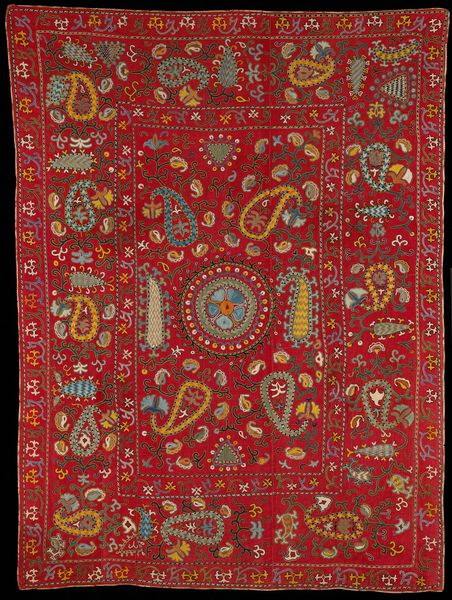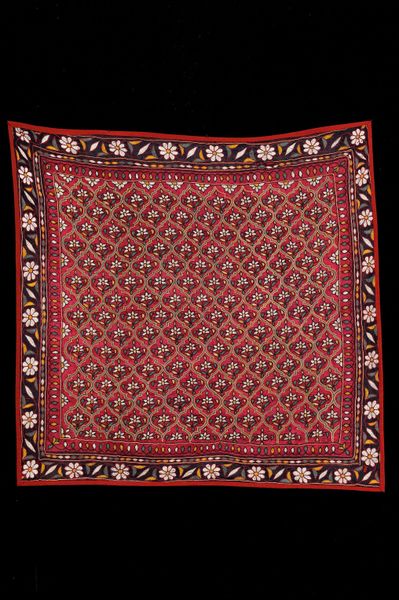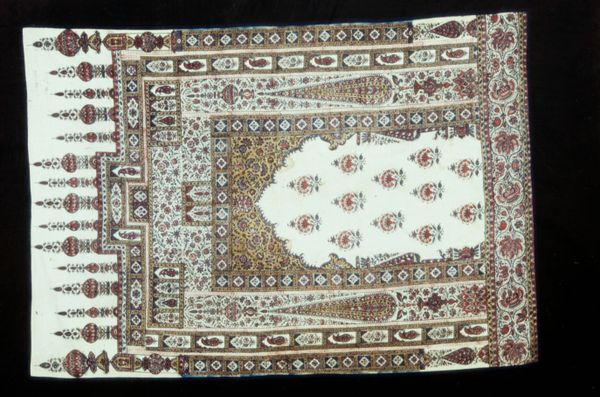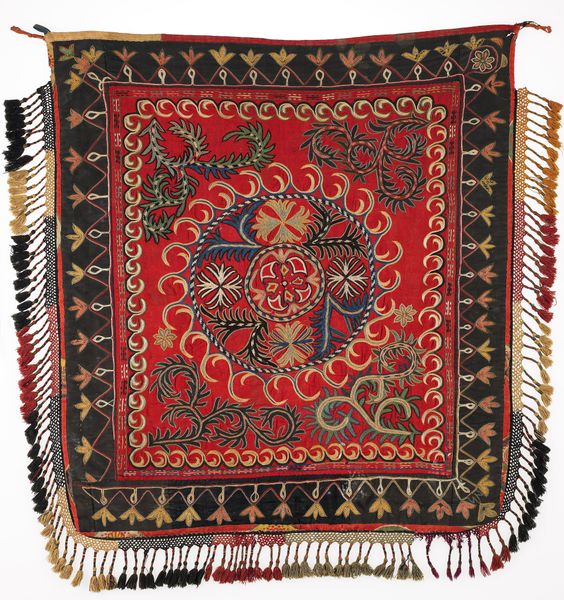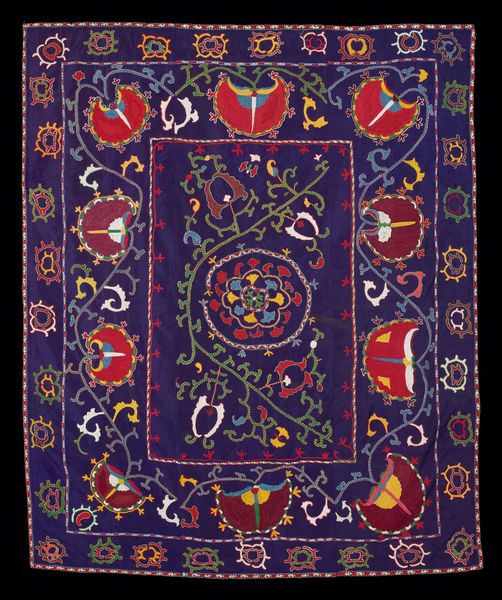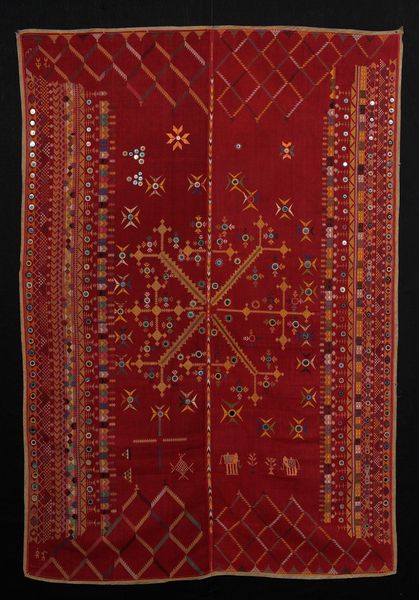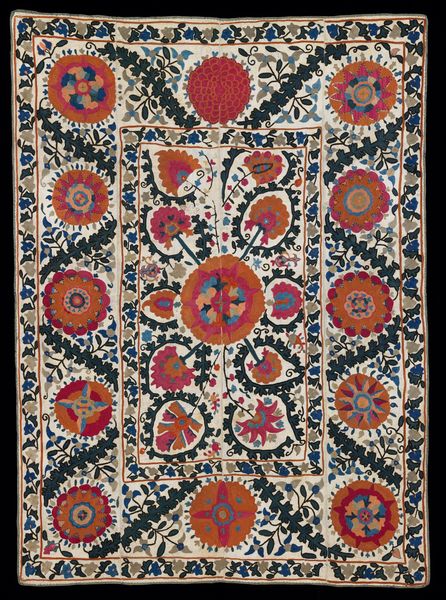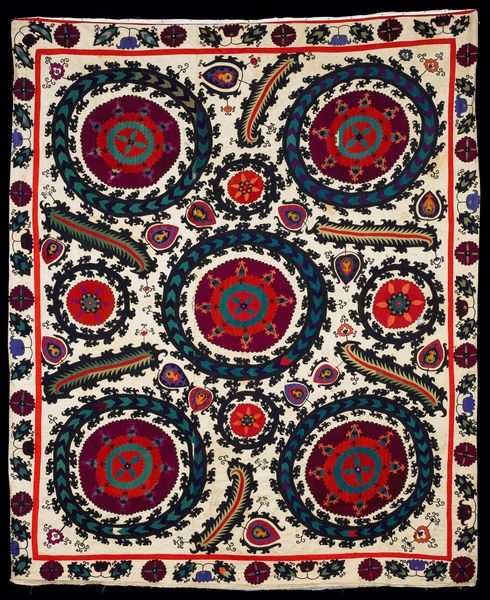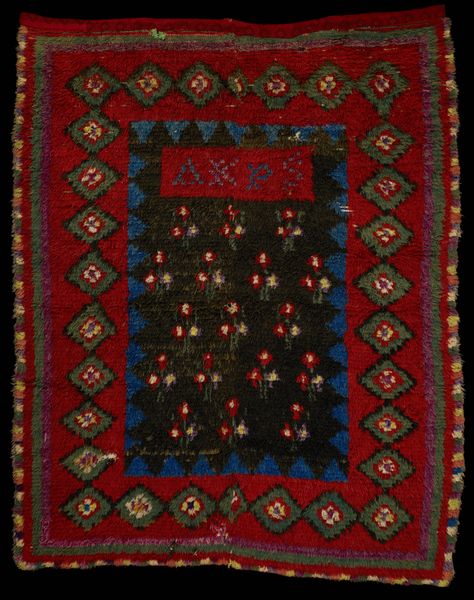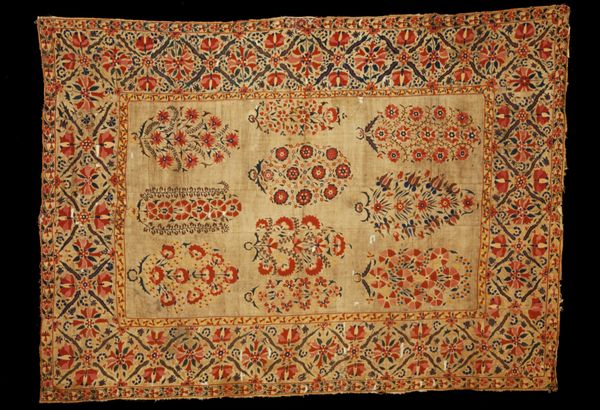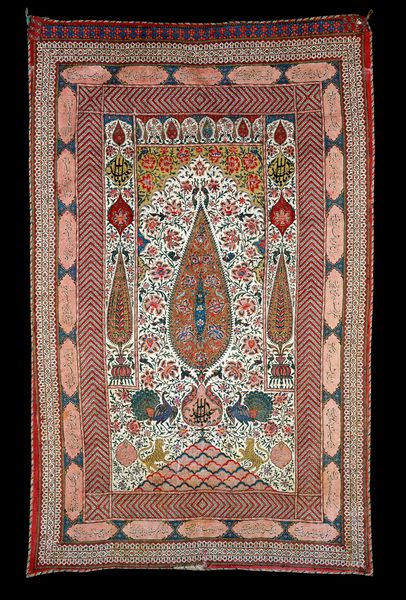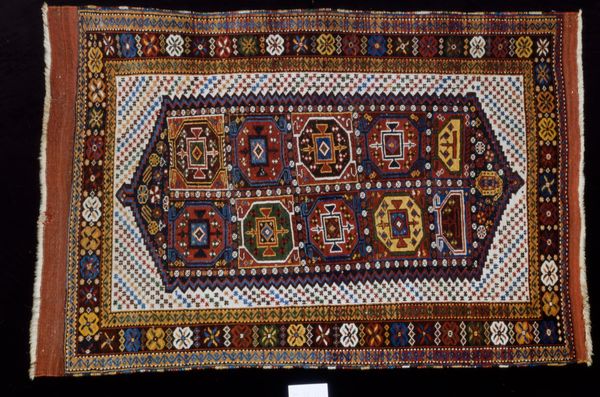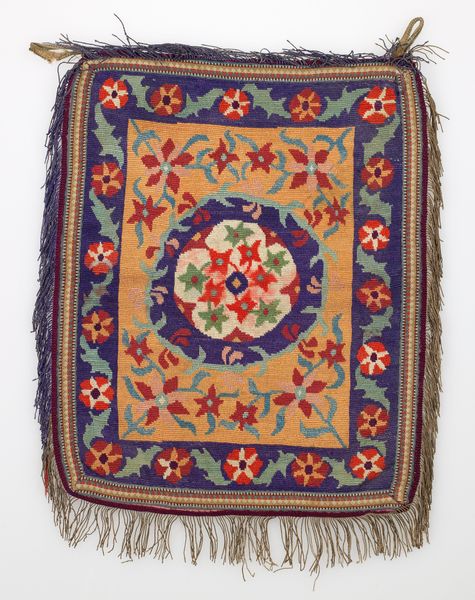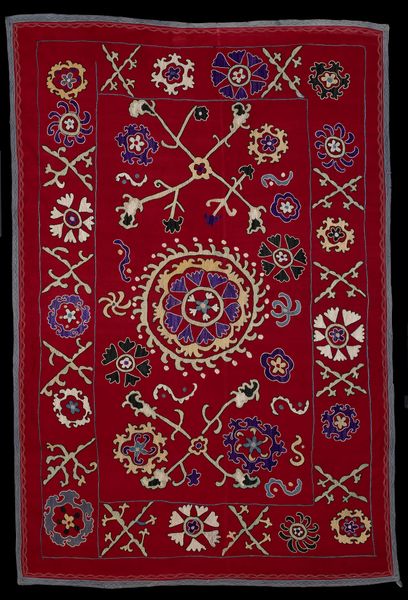
fibre-art, silk, weaving, textile, cotton
#
fibre-art
#
silk
#
weaving
#
textile
#
cotton
#
islamic-art
#
decorative-art
Dimensions: 78 1/2 x 47 3/4 in. (199.39 x 121.29 cm) (including lappet bands)
Copyright: Public Domain
Editor: Take a look at this "Wall Hanging" from the early 20th century, artist is unknown. It’s textile, silk, and cotton weaving. It's incredibly vibrant! So many colours and intricate details, almost like looking into a garden. I wonder, how do we interpret a piece like this, especially considering it's an example of Islamic art? Curator: It's fascinating, isn't it? What strikes me is how this textile exists within a web of cultural exchange. Consider its role not merely as decoration, but as a symbol embedded in a specific socio-political context. Islamic art often carries deep symbolic meaning, defying a straightforward, literal reading. What social classes are associated to this Islamic style? Editor: I see! So it is more than aesthetics alone. What specific visual clues help to indicate a function, or place of the piece's importance? Curator: Well, notice the deliberate symmetry and stylized floral motifs. These might point towards its use in ritual or ceremonial contexts, underscoring the power dynamics embedded within these spaces. Think about how such textiles functioned as signifiers of status and identity within communities. How might we consider that within a broader history of trade routes and cultural exchanges? Editor: So the wall hanging isn’t just beautiful, it's actively participating in cultural and societal stories? That's so amazing and different from my initial perspective. I would never have guessed at that reading, thanks! Curator: Precisely! Recognizing the forces that shaped its creation allows us to appreciate its role beyond a mere artifact, and consider it as a testament to the interwoven nature of art and history. It gives pause to how power may be intertwined with its beauty.
Comments
No comments
Be the first to comment and join the conversation on the ultimate creative platform.
